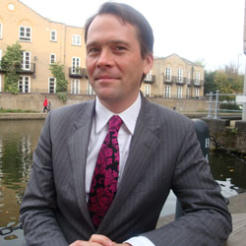NCVO has expressed disappoint that employment minister Chris Grayling is not minded to address charities’ concerns on timing of payments they receive on the Work Programme, as he argues that they choose to sign contracts with these payment terms.
Yesterday, the NCVO’s special interest group for the Work Programme sub-contractors met with employment minister Chris Grayling to air ongoing concerns of charities on the Work Programme. The meeting followed a survey NCVO released yesterday which found the Work Programme was putting charities' futures at risk.
NCVO’s deputy chief executive, Ben Kernighan told civilsociety.co.uk that the meeting was useful, but also a mixed picture.
Grayling, he said, had agreed to do some thinking around bringing personalisation into the Work Programme, which charities feel would address the problem of the current lack of volume of work the voluntary sector is getting.
“Many charities feel the Work Programme would be improved if individual unemployed people could choose who helped them. This would deal with the problem of voluntary sector organisations on the Programme not getting enough work,” said Kernighan.
Grayling also agreed to look at inefficiencies in administration of referrals; and wanted NCVO to become involved in a wider cross-governmental programme looking at the issue of payment-by-results, which is the structure for the Work Programme.
However, NCVO was less reassured with Grayling’s reaction to charities concerns on timing of payments on the Work Programme; and the issue of heavy obligations being placed on smaller providers by primes within contracts .
“There are major concerns about the timing of payments on the Work Programme, which is proving a big risk to the sustainability and ability of some charities to provide the Work Programme if money comes too late,” said Kernighan.
“But Grayling contends that providers had a choice in the nature of the contract they signed.”
Grayling used the same argument, when charities in the meeting said they had a disproportionate amount of responsibility in a contract. In some cases charities are having to meet the obligations of the main provider.
Kernighan said the minister was keen not to interfere in contracts: “This is fine if they are going well. But it’s less helpful when it’s going badly.”
Going forward NCVO plans to write to the minister reinforcing these concerns.
The special interest group’s next meeting will be with prime contractors on the Work Programme. It will look at what is working well and less well.
As well as coming under criticism from NCVO and the Employment Related Services Association this week, the Work Programme has also been slammed by the London Voluntary Service Council (LVSC) which says it is failing the charity sector and hard-to-reach beneficiaries.
A recent report from LVSC found that the expertise of specialist charities is largely unused in the Work Programme operating in London. It warns that this expertise is in danger of being lost and that employment inequalities will worsen in London as a result.
It found that the vast majority of tier 2 voluntary and charity subcontractors have had no job seekers referred to them at all. LVSC says that this raises doubts that the most disadvantaged job seekers facing employment inequalities, such as lone parents, disabled people, and minority ethnic groups will get the support they need.









